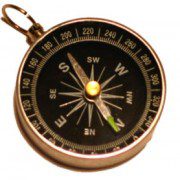Start the New Year by Evaluating Your 2012 Results
I hope you took time over the last few weeks to think about how 2012 went for you and your practice, and especially what you’d like to do differently in 2013. Change requires action, but unconsidered action relies too heavily on luck. That’s why planning is a must.
Have you ever been so eager to get somewhere that you just jump into the car and strike out, thinking that you’ll get your bearing and figure out directions as you travel? A few years ago, I was speaking in Knoxville, Tennessee. My host drove with me from the hotel to the restaurant where I was speaking, and I was to drive back to my hotel alone. I wasn’t familiar with Knoxville, and it took me more than an hour to get back to my hotel — a trip that should have taken only 20 minutes. I needed a “You Are Here” indicator, which prompted me to get a GPS unit soon afterward.
This same principle applies when it comes to business. If you don’t know where you are now, you’ll find it hard to take meaningful action.
Take these steps for a quick review:
- What was your 2012 practice revenue? How much did you bill, and how much did you collect? (If a larger firm associate, how much time did you bill and how much time did a supervising partner write off?)
- How did you get those clients? Specifically, what was most successful? What was least successful? (If a larger firm associate, consider assigning lawyers to be your internal clients.)
- What specifically do you do to serve your clients well? What could you do better? (For extra insight, ask your clients.)
- Who contributed to your success? How have you acknowledged those people?
- What mistakes did you make, and how might you avoid them in the future?
- How did you invest in growing your practice?
- What will you bring from 2012 forward to 2013? What should you leave behind?
While a full review will include additional questions, this short form will give you the foundational information you need to move forward in 2013. When you know what’s worked and what hasn’t, you’ll also be able to identify how to set your focus.




Leave a Reply
Want to join the discussion?Feel free to contribute!